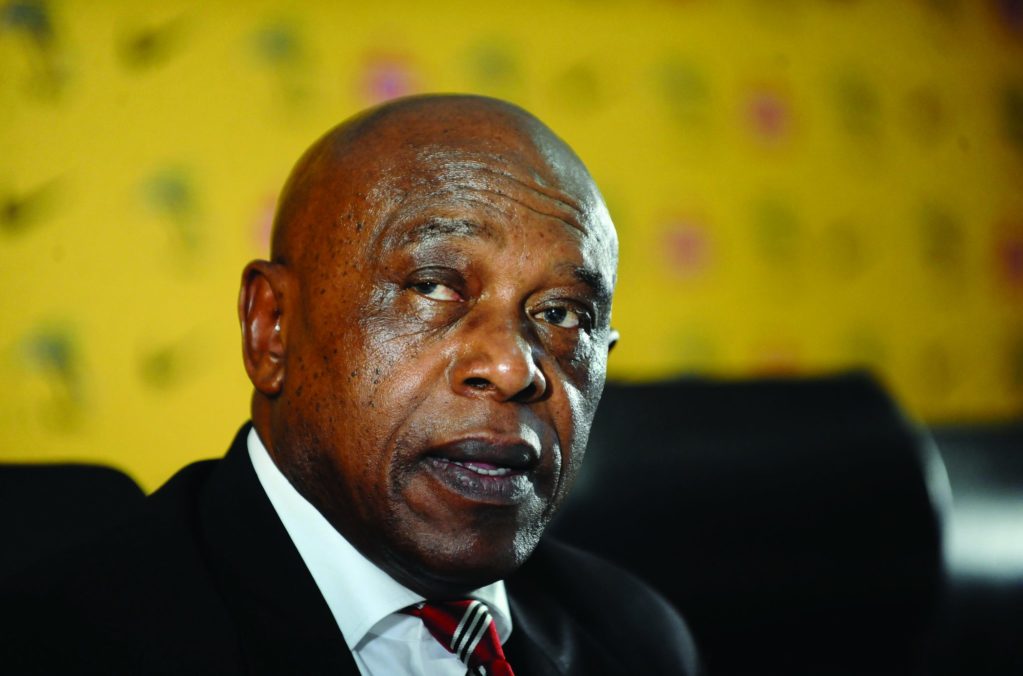As Tokyo Sexwale jets around the world seeking support for his bid to become Fifa president, his most significant trip will have been to the US grand jury in December.
A fleeting visit to New York remains shrouded in mystery with the US Attorney General’s offices refusing to comment and Sexwale’s camp saying only: “He did appear before a grand jury. The FBI said he needed to appear and he went as a potential witness.”
But it is almost certainly related to the bribery and corruption allegations in which South African officials are accused and, even if he is not directly implicated, will cast a dark shadow over Sexwale’s bid to become the first African to head world football’s governing body.
The election of a new leader of world football will come at an extraordinary congress in Zurich on February 26 with Sexwale among the five candidates in a distinctly underwhelming field with no clear favorite and the potential for an upset.
Sexwale could have offered a gravitas missing among the candidates, with his impeccable anti-apartheid credentials, his time spent in prison on Robben Island alongside Nelson Mandela and his role in the governing of a post-apartheid South Africa when he served as the first premier of the Gauteng province.
Loading...
But, as a member of the South African bid committee that successfully campaigned for the country to host the 2010 World Cup, his candidacy is now clouded by the possibility of vote buying, notably to Jack Warner from Trinidad and Tobago, the former Fifa vice president and powerful leader of the Caribbean bloc who delivered vital support.
Two high ranking South Africans have been fingered in the United States (US) indictment against a bevy of former Fifa officials, with allegations they handed over a suitcase of cash dollars in a Paris hotel room to one of Warner’s sons and that a $10-million ‘donation’ from South Africa to Caribbean football was nothing more than a bribe.
The pair have not been named but their identities will eventually become public once the court cases in the US get underway.
It leaves Sexwale out on the fringes of the race when he might have been able to offer himself as an alternative to what looks increasingly like a straight tussle between the Asian and European blocs.
Sheikh Salman bin Ebrahim al-Khalifa of Bahrain is the president of the Asian Football Confederation and, according to most pundits, the frontrunner, albeit narrowly ahead of Gianni Infantino, the Swiss attorney who is the Uefa general secretary and was supposed to be a proxy candidate but has since been pushed to the front since the banning of Uefa president Michel Platini.
Sexwale, who has made a large personal fortune in mining and other business, has tenuous football credentials and no apparent reason for wanting to become Fifa president other than it would be a good lark. The 62-year-old does not lack money, profile or international reputation.
His previous involvement with football has been to sit on a few Fifa committees at the invitation of Sepp Blatter, who was impressed by his jocularity and competence at the time of South Africa’s hosting of the World Cup. Sexwale was initially a member on Fifa’s anti-racism committee, then one that dealt with media matters and now serves as a mediator in fractious relationship between Israeli and Palestinian football.
Sexwale has had no involvement in South African football and, unlike many of his former cabinet colleagues, is rarely seen at games either. The name ‘Tokyo’ comes from a nickname given to him as a kid for his passion for karate, rather than the round ball game, when he was growing up. He was baptized Mosima Gabriel.
His manifesto did him no favors either, with its strongest point being a bizarre promise to allow national teams to display sponsorship on their jerseys so football associations could make more money.
At a time when greater issues have to be dealt with at Fifa, and the world of football is crying out for someone to offer a road map to a credible and clean future, Sexwale’s points seemed disappointingly trivial.
In December, at a rare forum in front of the press, his strongest argument for being president was his Africaness.
“The score is 111 to zero against Africa. For 111 years, Fifa has not had an African,” he said in Johannesburg. “I’m not here to keep quiet like a slave and pretend that these things are not happening.”
This will likely have little appeal in the hardened forum of sports politics, where arguments over race and religion have long since dissolved, with Africans having headed both world athletics and swimming in the past.
In the insular world of football politics, Sexwale is an outsider and his bid to get an endorsement from his own continent failed when the Confederation of African Football received him in Cairo in November and listened to his presentation but pointedly did not move to back him, even though he is the only African in the race.
Sexwale has missed a trick in failing to concentrate his message on ways to fix the crisis at Fifa – to change its statutes and structures and to devise methods for accountability that would help restore commercial and consumer confidence.
In the past, candidates for the Fifa presidency have made the mainstay of their electoral promise how much more money they could assure the voting member associations but, at this time, priorities are much changed.
Sexwale flashes a radiant smile; his barrel-chested voice commands instant attention and his charm is legendary. But he entered the race for the Fifa presidency with naivety, poor advice and, barring a comeback miracle, will exit with little more than a damaged reputation.
Loading...
